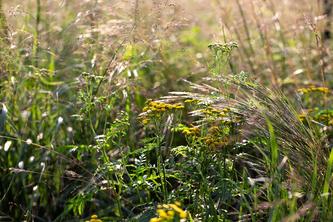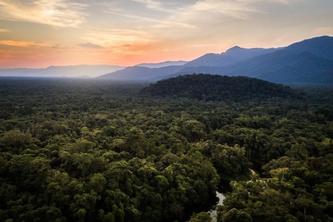
MINNEAPOLIS/ST. PAUL (02/05/2024) — Understanding how different communities value water and prioritize its protection is critical to effective policy and governance.
University of Minnesota research recently published in Society & Natural Resources explores how socially and culturally diverse Minnesotans value water. While some values are universal — safe drinking water, for example — other values and priorities vary by sociocultural identities.
This work was supported by the Minnesota Environment and Natural Resources Trust Fund as recommended by the Legislative-Citizen Commission on Minnesota Resources (LCCMR). Funding for this project was also provided by the Minnesota Stormwater Research Council and Clean Water Funds established by the Minnesota Clean Water Land & Legacy Amendment.
“Minnesotans don’t all experience water in the same ways — we have different water relationships depending on where we live, our cultural worldviews, our life experiences and the hardships we face,” said lead author Mae Davenport, a professor in the Department of Forest Resources and director of the Center for Changing Landscapes. “Unfortunately, because of historical and institutional injustices that still affect people today, culturally diverse and non-dominant racialized groups have been underrepresented in positions of power and underserved by decisions that affect human-water relationships.”
Through two studies, a statewide mail survey of Minnesota residents and an onsite survey of Twin Cities community members at cultural events, the research team observed how variables like gender, race, ethnicity and home ownership are associated with different water priorities. The researchers partnered with community leaders to make the methods more inclusive and representative of diverse water relationships.
They found:
- Safe and clean drinking water was the most important water value in both studies, across all gender, race and ethnic identities.
- Culturally diverse respondents identifying as Asian, American Indian, Black or African American, Hispanic or Latino, Middle Eastern or North African, or Native Hawaiian or Pacific Islander placed higher importance than white-only identifying respondents on many water values, including water for cultural and religious practices, for watering vegetable gardens, for recreation opportunities, and fishing for preferred species.
- Female-identifying respondents placed higher importance on average across water values than male-identifying respondents in the statewide survey.
- The inclusive onsite survey methodology led to an increase from culturally diverse (75%) and female-identifying perspectives (56%), compared to the traditional mail survey (97% white, 66% male-identifying).
“What we have learned through this research will support more inclusive and community-centered water dialogue, science, policy development and investments for all Minnesotans,” said Davenport. “I believe we all will benefit from learning more about the deep and meaningful connections people have with water in Mni Sóta Maḳoce, the Dakota name for what is now called Minnesota, meaning ‘where waters reflect the clouds.’ And, water will benefit too as we share in our knowledge and caretaking practices.”
These findings suggest that more inclusive and holistic water science, policy and management is needed. Approaches that acknowledge and support the diversity of water values and relationships should be incorporated into water programs, policies and investments. Additionally, science requires more inclusive research and engagement methodologies to explore and uplift different voices and narratives around water.
The research team is building upon this work in partnership with the Metropolitan Council by surveying Twin Cities residents about their water values and experiences, particularly residents of color, renters and younger residents.
About the Center for Changing Landscapes
The Center for Changing Landscapes offers social science research services, conservation program evaluation, community assessment training, and research design assistance to natural resource agencies, nonprofit organizations, and communities in Minnesota and beyond. The Center’s researchers specialize in the use of interdisciplinary community-based research methods, innovative multi-methods evaluation, and inclusive project planning. A primary goal of the center is to empower communities and natural resource managers in inclusive and visionary planning and problem-solving for sustainable, livable, and equitable futures. Learn more at changinglandscapes.umn.edu.
About the Water Resources Center
The University of Minnesota’s Water Resources Center (WRC) provides leadership in freshwater management through cutting-edge research, educational opportunities for students and professionals, and community outreach. Authorized by Congress as one of the nation’s 54 water resources research institutes, the WRC also connects the research expertise at the University to research problems at the national level. The Water Resources Center is a unit of the College of Food, Agricultural and Natural Resource Sciences and University of Minnesota Extension.
About the College of Food, Agricultural and Natural Resource Sciences
The University of Minnesota’s College of Food, Agricultural and Natural Resource Sciences (CFANS) strives to inspire minds, nourish people, and sustainably enhance the natural environment. CFANS has a legacy of innovation, bringing discoveries to life through science and educating the next generation of leaders. Every day, students, faculty, and researchers use science to address the grand challenges of the world today and in the future. CFANS offers an unparalleled expanse of experiential learning opportunities for students and the community, with 12 academic departments, 10 research and outreach centers across the state, the Minnesota Landscape Arboretum, the Bell Museum of Natural History, and dozens of interdisciplinary centers. Learn more at cfans.umn.edu.
- Categories:
- Agriculture and Environment
- Water





